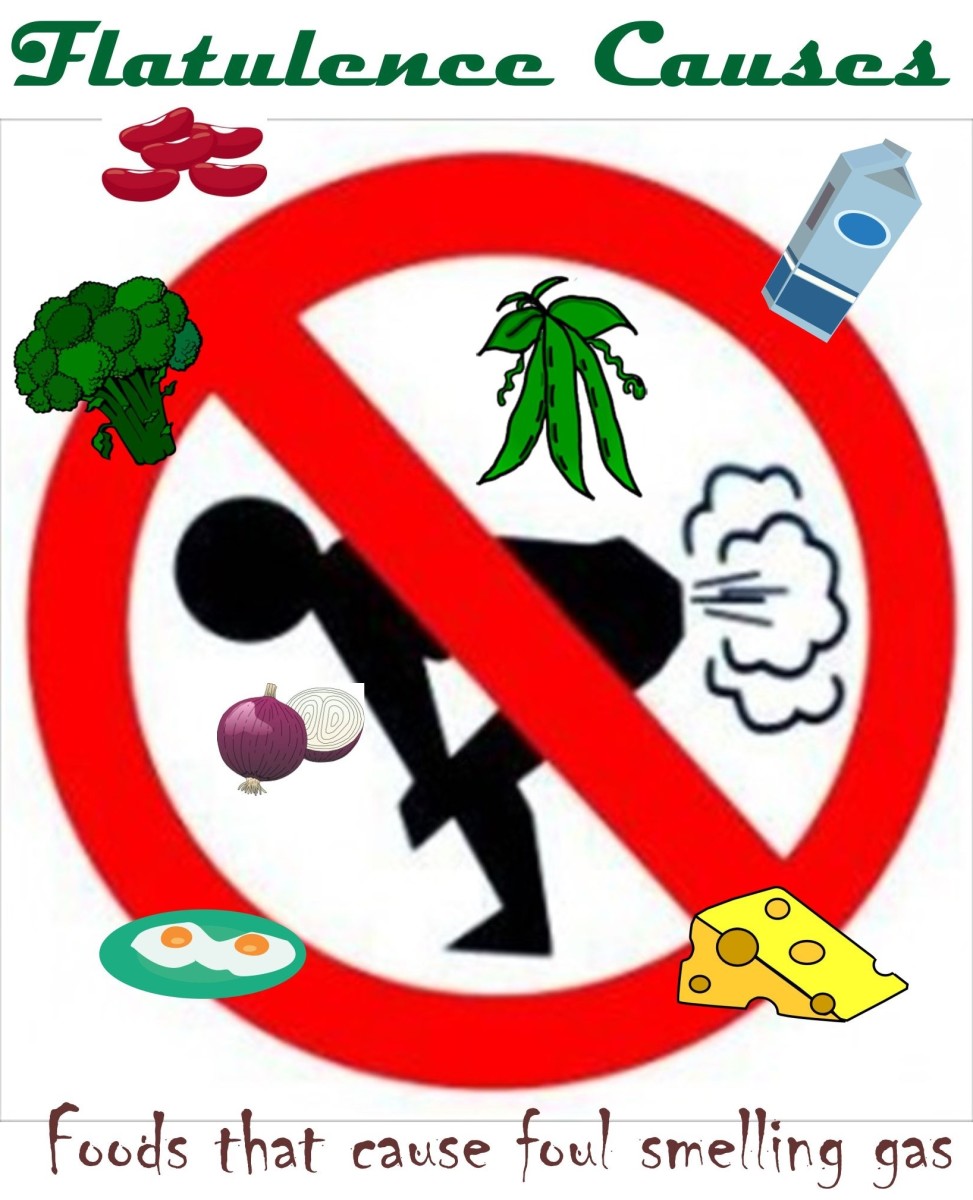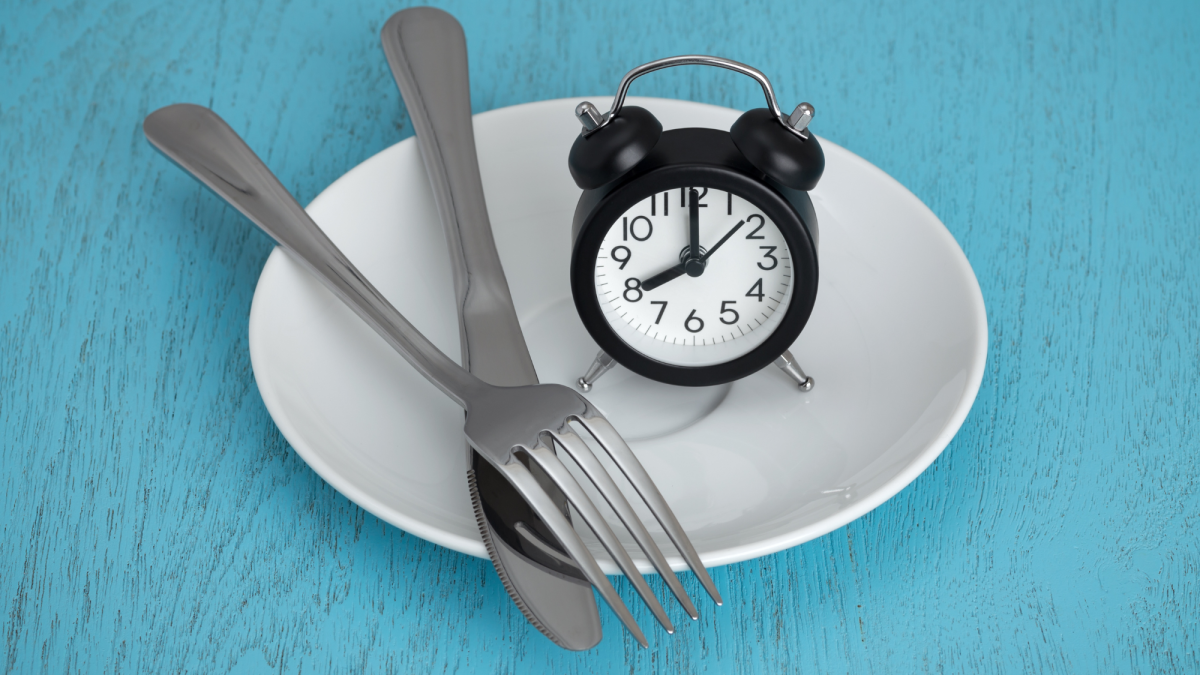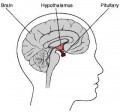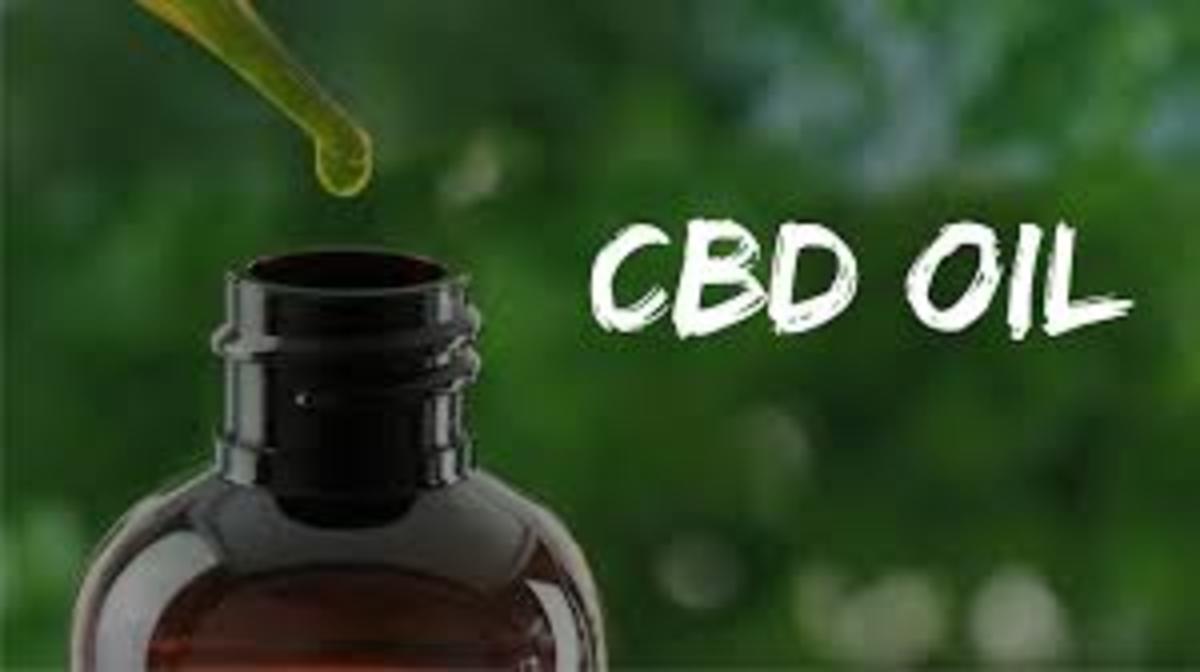How to Delay Ageing:- Avoid Causes and Foods

Introduction
Aging is related to several factors. In this article, one can find the list of some of the chief causes of aging as follows.
- Digestion
- Inflammation
- Oxidation
- Hormone imbalance and
-
Acidification
Besides, there are certain foods which speed up the process of aging and cause degeneration. They are also included in the list of aging foods in the list as follows.
-
Sugar
-
Salt
-
Cow's Milk
-
Meat and
-
Bad Fats and
-
Foods with High Carbohydrates
Cause 1. Digestion
Aging is related to the proper functioning of the digestive system and the right gut movement. Due to indigestion the skin, hair, nails, muscles, and bones become undernourished and the aging process begins.
The digestive system has more neurons than the spinal cord and more neurotransmitters than the brain.
About 90 % of the mood-enhancing chemical serotonin is created in the bowels and thus the gut and the mood are closely connected. That is why eliminative slowdown affects mood and emotional health.
In sluggish gut or indigestion, the body fails to absorb the nutrients completely. The yeasts like candida begin to overgrow inside and cause toxic side effects like headaches, spots, chronic tiredness, depression, low energy, and high cholesterol levels.
The Bowel Movement Test for Digestion
The gut movement or the transit time of the gut is checked by performing a charcoal or spinach test. Eat about 5-10 gram of charcoal available in food shops or a cup of boiled spinach just two hours before eating anything and five hours before going to bed. The perfect time for the bowel movements to become black or green is about 12 to 24 hours. A toxic build-up occurs for more time taken. The gut is sluggish if less time is taken and shows that the nutrients are not being properly absorbed by the body.
How to Improve Digestion?
1. The intake of ginger 3 gram before a meal increases the appetite and after a meal to improve the digestion.
2. The leaves of strawberry have antibacterial and anti-fungal properties. They soothe the upset stomach, promote digestion, reduce bloating and relieve aches and pains of arthritis. It is rich in vitamin C and is good for healthy skin too.
3. The probiotic bacteria found in banana helps in the absorption of calcium and increases the digestion. It produces liquid acid in the stomach due to which the food gets easily perished and digested. Banana consists of 108 calories and gives instant energy.
4. Honey strengthens the intestines and gives energy to the body. It removes the toxins from the body and kills the worms inside the stomach. It helps in indigestion, diarrhea, and constipation.
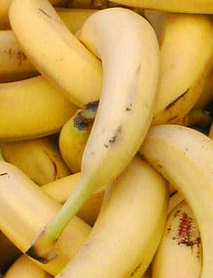
Banana
It is rich in potassium and calcium which help in the formation of healthy bones.
Cause 2. Inflammation
Inflammation is the first and the fastest natural reaction to injury, allergy, and infection. In such a situation the inflammatory response gets activated and the immune system gives protection.
Due to aging, this response may become over-reactive and cause activated immune cells to remain circulating in the body.
This state of chronic low-level inflammation is called inflammaging. It leads to the loss of skin quality and causes infections and allergies.
The immune system starts in the gut. About 70% of the immune system is located in the gut and the immunity decreases in the slow gut. The immunity becomes weak in gut inflammation, gas, bloating loose stools and tenderness.
How to Reduce Inflammation?
1. Avoid foods that cause inflammation like bloating or puffiness and make the eyes or nose run.
2. The red meat, sugar, white flour, and certain dairy products are inflammatory foods.
3. Eat foods containing inflammation-reducing antioxidants like polyphenols which are present in cloves and other seasonings, cocoa powder and dark chocolate, berries, Non-berry fruits ( black currants, plums, sweet cherries, apples), beans, nuts, vegetables (artichokes, chicory, red onions, spinach), black and green tea, soy, red wine, etc.
4. Take a teaspoon of dried turmeric or a piece of fresh turmeric root every day with soup, juice, egg, rice or milk. Curcumin, the best anti-inflammatory ingredient, and omega-3 fatty acids are contained in turmeric.
5. The first noticeable inflammatory symptoms like joint pains occurring in estrogen drop during menopause could be eased by taking a natural diet rich in plant estrogen. So eat sufficient amounts of beans, seeds, leafy greens, whole grains, etc.
Chicory Reduces Inflammation

Cause 3. Oxidation
Every cell in the body needs oxygen. The body cells function by the energy released due to the use of oxygen in chemical reactions or normal aerobic processes.
But oxygen is highly reactive and often combines with other molecules, and the byproducts of these reactions create unstable atoms or molecules called free radicals.
The free radicals have the presence of an uneven number of electrons as they have either the lost or the gained electrons. But all atoms have a natural tendency to become stable and hence a free radical may steal an electron from the neighboring molecule or unload its spare electron onto its neighbor.
This process causes oxidative stress which can damage the cell structure and even the DNA within the cells.
The molecular instability can weaken and kill a cell by damaging its membrane. It leads to poor collagen production and other breakdowns in the mechanism of healthy skin structure.
The body manages the oxidative stress in several ways. But the number of free radicals and the load of the stress to be processed increases, when the body is exposed to high levels of external toxins like alcohol, smoking, stress, UV light, and chemicals in food and cleaning products.
Certain foods give up an electron to form the bonds with free radicals so that the free radicals don’t have to steal the electrons from other cells of the body.
How to Reduce Oxidative Stress?
1. The colorful foods like green leafy vegetables, orange fruit, and orange-colored vegetables, purple berries, nibs of cocoa and green tea contain high levels of antioxidants.
2. Other antioxidants are red beans, kidney beans, pinto or aduki beans and small red beans. The outer coatings or the skins of these beans are rich in flavonoids such as anthocyanin and other compounds and give a big punch of antioxidants to reduce the eliminative slowdown and inflammation in the body.
3. The best antioxidants are asparagus and carrots.
4. Always eat healthy and organic foods and avoid junk and oily foods.
5. Take green or black tea Coffee and Omega 3 Fatty Acids.
6. The researchers have found that cocoa contains high levels of two dietary flavanols called epicatechin and catechin. They protect the skin from sun damage, improve circulation to skin cells, improve hydration and make the skin smoother.
7. The green tea extracts are the ones most commonly found in anti-aging creams. The studies show that green and white tea are superior antioxidants and help in reducing wrinkles.
8. Green chilies contain antioxidants and vitamin C which increase the immune system and fights against cancer and other diseases.
Carrots are the Best Antioxidants
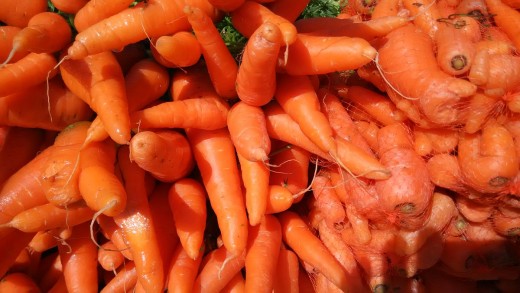
Cause 4. Hormone Imbalances
The hormone imbalance in the body speeds up the aging process and the weight gain causes wrinkles. The stress or sleeplessness caused by hormone imbalance makes a person older.
The long term excess or less production of a specific hormone is caused by improper diet and stress. The hormones counterbalance each other in very complex ways and the imbalance causes the hormones to overreact.
Due to the imbalance of stress hormone, the problems like anxiety, mood swings, allergies, headaches, wrinkles, abdominal fat gain, sleep disorders, risks of infection, weak muscles, diabetes, alcohol cravings, gas, and loss of libido may appear.
The imbalance of thyroid hormones may cause fatigue, dry skin, heart palpitations, cold hands and feet, thinning hair, brittle nails, weight gain or weight retention, menstrual irregularities and loss of libido.
The building up of too much insulin may cause fat deposits or lumps or cellulite, leading to sagging skin, increase the abdominal or blood fats and accelerate the weight gain. It also results in fatigue, memory loss, carving for carbohydrates, sleeplessness, and diabetes.
How to Balance Hormones
1. The balanced diet, lowering of stress and proper sleep improves the mood and stabilizes the hormone imbalances.
2. The pumpkin seeds, asparagus, unrefined whole grains like brown rice, quinoa, barley, and oats; nuts especially the Brazil nuts, oysters; licorice (taboo in high blood pressure) are the hormone balancers.
3. The garlic is the best hormone balancer as it contains vitamin B6 which helps in the production of serotonin and corrects the high cortisol levels, a common cause of night waking. Garlic is a source of phytoestrogens, which mimic the action of estrogen and can help the premenopausal and menopausal women. It also helps to regulate the blood sugar levels.
4. It is advisable to eat a clove a day.
5. The testosterone in women declines during menopause which leads to less muscle and more fat around the waist. Brassica, a genus of plants in the mustard family of cruciferous vegetables like cabbage and broccoli are good testosterone building foods unless there is an underactive thyroid.
Garlic Balances Hormones
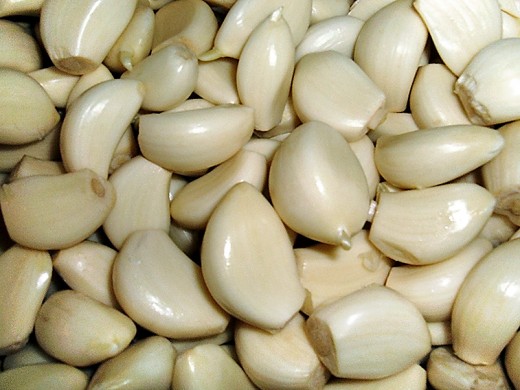
Cause 5. Acidification
All the cells in the body perform their best when the fluid inside them is slightly alkaline.
But the intake of too many acid-producing foods like meat, coffee, cheese, cereal, sugary drinks, and snacks results in long-term acid overload or acidification which leads to aging.
In order to neutralize the excess acid, the body takes alkaline calcium and magnesium from the bones. It thereby weakens the bones and leads to osteoporosis.
The iodine needed by the body is taken from the soft tissues, which negatively affects the thyroid and leads to fatigue, depression, mental fog, weight gain, and diabetes.
The chronic acidity may also encourage fatty acids to go from negative to positive charge and thereby stick to the walls of the artery and lead to the risk of diabetes and heart disease.
The enzyme function may weaken during acidification, thus creating digestive disorders and food intolerance.
How to De-Acidify the body
1. Avoid processed foods and processed grain foods. Take caffeinated colas, alcoholic beverages, and sodas in moderate amounts.
2. Eat fruits, as all fruits are alkaline. Even acidic citrus fruits have an alkalizing effect on the body.
3. Eat GMO-free organic foods, and balance acid-forming poultry, meat, and fish with the intake of fruits and vegetables.
4. Take apple cider vinegar once or twice a day by adding a tablespoon of it in a glass of water.
5. Eat potassium-rich foods like lemon banana and honey.
6. To create an alkaline state in the body, take a juice of a half lemon with two teaspoons of raw honey in a glass of water in the morning.
Apple Cider Vinegar Alleviates Acidification
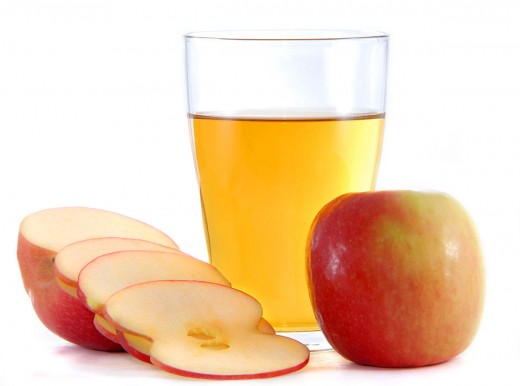
The Most Ageing Foods
There are certain foods which put extra load on the normal functioning and metabolism of the body. These foods speed up the process of degeneration of the body and cause aging.
Ageing Food 1. Sugar
There is a great difference between the simple sugars or the refined processed one usually used as a food additive. The body also converts the carbohydrates into glucose and uses it as a fuel. The former is the most aging food of all, while the latter is vital for the body.
The sugar leads to the four aging processes of acidification, inflammation, eliminative slowdown, and hormone imbalance.
The sugared foods slow the ability of the body to regenerate itself and the aging process speeds up. It causes aching in joints, cravings, flabby belly, decreased muscle tone, low alertness, and increased mood swings, puffy eyes, skin spots or wrinkles, and tooth decay.
The sugar has been linked to shortening the life span and is known as the white death.
Instead of refined sugar, it is better to switch to slow-release carbohydrates like whole grains, pulses, fruit, and vegetables. Several savory foods are sweet.
In case of an urge for sweet foods, it is advisable to try beetroot, carrots, sweet potato, tomato, almonds or pistachios.
Eat fruits with nuts and seeds as the good fats also slow down the metabolism of sugar.
Insulin level and Aging
The insulin is the major accelerator of aging and the healthy levels of insulin can be maintained by reducing or eliminating the grains and sugars from the diet.
The nutritional food, exercises, healthy lifestyle and the inclusion of natural anti-aging foods in the diet improves the health and longevity as they improve the sensitivity of insulin receptors to optimize the insulin levels.
Avoid Sugar
The brain runs on glucose, but unlike other organs, it cannot store the glucose. The brain receives the amount of glucose that happens to be traveling around the bloodstream. This thing makes the brain vulnerable to fluctuating levels of blood sugar.
And a sugar intake instantly injects the brain with glucose which quickly diminishes its functioning. The brain thus goes into a crisis mode and one feels weakness, headache, mood swing and loss in concentration. This development leads to the aging symptoms of hypoglycemia. It is better to avoid the processed sugars and go for the diet of complex carbohydrates.
Sugar Causes Aging

Ageing Food 2. Salts
The two main constituents of salt are sodium and chloride. These are important minerals along with potassium. They help the muscles, nerves, and cells to function in a proper way.
But despite being an essential compound the salt causes aging when we eat too much of it.
This cheap flavor enhancer or preservative is present in over-processed foods and healthy foods like cold meats and canned beans including the packaged cheese, bran cereals, soups, pickles, and juices.
The dried fruits contain sodium sulphite while sodium alginate is found in ice creams.
The over-consumption of salt accelerates the aging processes of inflammation, acidification, eliminative slowdown, and hormone imbalance.
The high-salt diet causes inflammation and the cells swell with water. It upsets the balance of sodium and potassium that generates the energy needed to move the muscles and nerves. It leads to weakness and fatigue.
One should not consume more than 3g salt or 1g sodium per day. The best way to avoid the salt is to stop adding it to food and abstain from the processed foods that contain more than 0.2g sodium per 100g of it.
It is better to switch to the herbs and use the rock salt or sea salt, which contain more minerals than table salt and are saltier too.
Processed Foods Contain More Sodium

Ageing Food 3. Cow’s milk
The milk of the cow contains rich amount of calcium, vitamins, and proteins, but it leads to all the four aging processes in the body.
1. Eliminative slowdown, which causes bloating, constipation or diarrhea.
2. Inflammation like mucus, stiff joints, and inflammatory bowel disorders.
3. Hormonal imbalance by affecting blood sugar and estrogen levels.
4. Acid-forming.
The milk thus needs to be balanced by alkalizing foods like vegetables. In the absence of vegetables, the alkaline calcium is leached out from bones and teeth, thereby defeating the effects of this so-called calcium-rich food.
The milk has been found to be linked to serious diabetes, osteoporosis, and certain cancers.
It can be a major allergen linked to asthma and eczema.
The milk derivatives like casein and lactose are also present in bread, cakes, biscuits, processed meats, cheese, and crisps.
The milk of goat, sheep or buffalo, on the other hand, is richer in many vitamins, minerals, and anti-inflammatory oligosaccharides. Such milk especially the yogurt boosts the friendly gut bacteria and are easily digestible.
The cheeses such as manchego, feta, and mozzarella do not come from the milk of the cow.
In order to replenish the needs of calcium, it is better to take the dark green leafy vegetables, beans, nuts, seeds, grains, and nut milk.
Avoid Cow’s Milk

Ageing Food 4. Meats
The body needs proteins to build the muscles, ligaments and skin tissues, but meat is not the only protein.
The meat is a highly calorific acid-forming foodstuff, which triggers all the five aging processes.
Meat contains high levels of saturated fats and causes chronic inflammation.
It irritates the gut and builds up the cancer-causing compounds.
The frying, grilling, roasting or char-grilling causes DNA-altering of the cells.
It also causes free radicals and leads to oxidative stress.
The intake of meat should be limited to one portion or up to 100g once a week and that once a month preferably derived from the free-range chicken, turkey or organic lamb.
The fish is a good source of protein. The other anti-aging proteins are found in eggs and grains especially amaranth and quinoa. The legumes including beans, lentils, tofu, nuts, and seeds are also rich in proteins.
Avoid the sausages, bacon, ham, burgers, hot dogs and barbecued, grilled and roasted meats, as they are acid-forming and also cause inflammation. Some of them and the processed meat are high in cancer-causing sulfites and nitrites.
Limit Meat Intake

Ageing Food 5. Bad Fats
The fats help the body to absorb fat-soluble vitamins which are essential for the healthy-looking skin, brain function, mood swings and energy needs of the body.
The fats are very essential to maintain the cell structure in the body, as every cell has a protective outer coating of fat and protein which covers the cell. When this coating is in fluid form or made of good fats, it can help the cells to absorb the water and other nutrients and can activate the chemical messengers in the body. When this coating is not in fluid form because of bad fats, these processes get impaired.
The lack of fluidity triggers several aging symptoms, including the decline in skin quality, inflammation, allergies, depression, premenstrual syndrome or PMS, joint pain and osteoarthritis.
The bad fats are the Trans fats or hydrogenated fats which are being phased out in some countries. But the Trans fats are still being widely used in processed foods like cakes, fast foods, ice creams and the oils used in deep frying.
These Trans fats cause inflammation, acidification, oxidation, and hormonal imbalance by interfering with the normal functions of the cells. They have also been found to be linked with depression and coronary heart diseases. They increase the levels of bad cholesterol and decrease the level of good cholesterol. They increase the risk of degenerative diseases and may also lead to blood sugar disorders, as they disrupt the action of insulin in the body.
So it is better to switch to fats derived from unprocessed oily fish, avocados, goat or sheep products, soy, and nuts.
On the other hand, it is advisable to eat full fats instead of processed low-fat foods and use the cold-pressed ones rather than the refined oils.
Avoid Trans Fats and Processed Foods
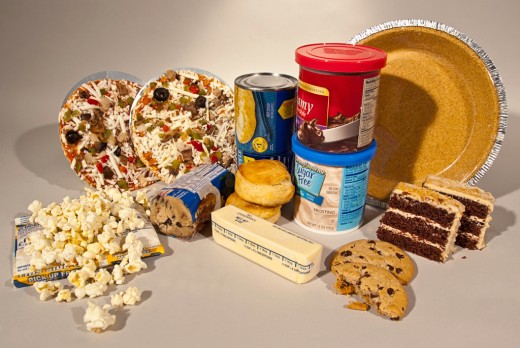
Ageing Food 6. High Carbohydrates
The foods containing high levels of carbohydrate cause degeneration and speed up the process of aging. They should be avoided or taken in moderate amounts. A list of such foods is as follows.
Sugar,
Olestra,
Alcohols,
Additives,
Margarine,
Cigarettes,
Chocolate,
Canola oil,
White flour,
Vegetable oil,
Puffed Grains,
Cottonseed oil,
Deep-fried foods,
Processed foods,
Microwaved foods,
Hydrogenated oils,
Artificial colorings as in Gatorade,
Mono Sodium Glutamates (MSG),
Fluoride which is actually a rat poison,
Milk like homogenized milk and cheese,
Seafood which eats garbage like oysters,
Preserved Meats, Chips and French fries,
Meat from animals on unnatural diets (e.g., pork),
Caffeine present in tea, coffee, chocolate, and cola,
Artificial sweeteners like aspartame and NutraSweet,
Aluminum coming from the cookware and other sources,
Mercury-containing foods like most of the fish including tuna,
Soy products other than soy sauce, miso, tofu soy milk, and soy oil,
Meat and eggs raised by normal methods have many toxins and hormones,
The oil that is not cold-pressed or expeller-pressed (Use olive oil, butter or butter oil),
Genetically Modified Foods (GMOs) present in 50% of all soy and corn, even organic ones can have GMOs unless otherwise stated.
Further Reading
Cigarette Causes Aging

This content is accurate and true to the best of the author’s knowledge and is not meant to substitute for formal and individualized advice from a qualified professional.
© 2019 Sanjay Sharma

